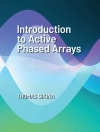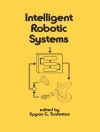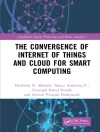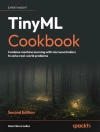This book investigates distributed cooperative control and communication of MASs including linear systems, nonlinear systems and multiple rigid body systems. The model-based and data-driven control method are employed to design the (optimal) cooperative control protocol.
The approaches of this book consist of model-based and data-driven control such as predictive control, event-triggered control, optimal control, adaptive dynamic programming, etc.
From this book, readers can learn about distributed cooperative control methods, data-driven control, finite-time stability analysis, cooperative attitude control of multiple rigid bodies.
Some fundamental knowledge prepared to read this book is finite-time stability theory, event-triggered sampling mechanism, adaptive dynamic programming and optimal control.
Inhoudsopgave
Overview of multi-agent systems cooperation.- Distributed Adaptive Model-Based Event-Triggered Predictive Control for Consensus of MASs.- Event-Triggered Tracking Control For Heterogeneous MASs With Markov Communication Delays.- Time-varying Formation Tracking of Uncertain Non-affine Nonlinear MASs with Communication Delays.- Consensus of Nonlinear MASs with Relative State Saturations.- Distributed event-triggered cooperative attitude control of multiple groups of rigid bodies on manifold SO(3).- Distributed robust finite-time attitude containment control for multiple rigid bodies with uncertainties.- Data-driven Distributed Optimal Consensus Control for Unknown MASs with Input-delay.- Data-driven optimal event-triggered consensus control for unknown nonlinear MASs with control constraints.
Over de auteur
Professor Dong Yue is the dean of Institute of Advanced Technology, College of Automation & College of Artificial Intelligence of Nanjing University of Posts and Telecommunications. In 2009, he was appointed a prestigious Chair by China’s Ministry of Education, “Chang Jiang (Yangtze River) Scholar Chair Professor” and was granted a Special Allowance from the State Council. He is the chief of Jiangsu Engineering Laboratory of Big Data Analysis and Control for Active Distribution Network. He is a World’s Highly Cited Researcher by Thomson Reuters in 2018, and a Chinese Highly Cited Researcher by Elsevier in 2014-2017.
Professor Yue serves as the Guest Editor, Associate Editor of International Journals, IEEE TSMCA, IEEE TNNL, JFI and IJSS. He is the member of Editorial Board of Control Theory & Applications, Information and Control, the member of Expert Group of Intelligent Manufacturing Alliance of CAST Member Societies, the committee member of IFAC TC6.3 Power and Energy Systems, the Managing Director and deputy secretary general of Chinese Association for Artificial Intelligence, the Deputy Director of Energy Internet of Chinese Association of Automation, the Vice Chairman of Embedded Instrumentation and System Technology Chapter of China Instrument and Control Society, the member of Technical Committee of Control Theory, Process Control and Intelligent Automation of Chinese Association of Automation, the Managing Director of Chinese Association of Automation.
Professor Yue has secured over twenty competitive grants including 863 National Project, Key General Project of the Natural Science Foundation of China and Provincial Project. He was awarded one First-Prize in Natural Science of Chinese Association of Automation, three Second-Prize of provincial Science and Technology and over 100 patents for invention. He has published over two hundred papers collected in SCI, and has been cited over 3500 times. His research interests include networked control, big data analysis and coordination control of Smart grid, Internet of Things and its application.
Huaipin Zhang received the Ph.D. degree in control science and engineering from the Huazhong University of Science and Technology, Wuhan, China, in 2017. Since 2018, he has been with the Institute of Advanced Technology, Nanjing University of Posts and Telecommunications, Nanjing, China, where he is currently an Associate Professor. His current research interests include multi-agent systems, event-triggered control, data-driven control, optimal control.












